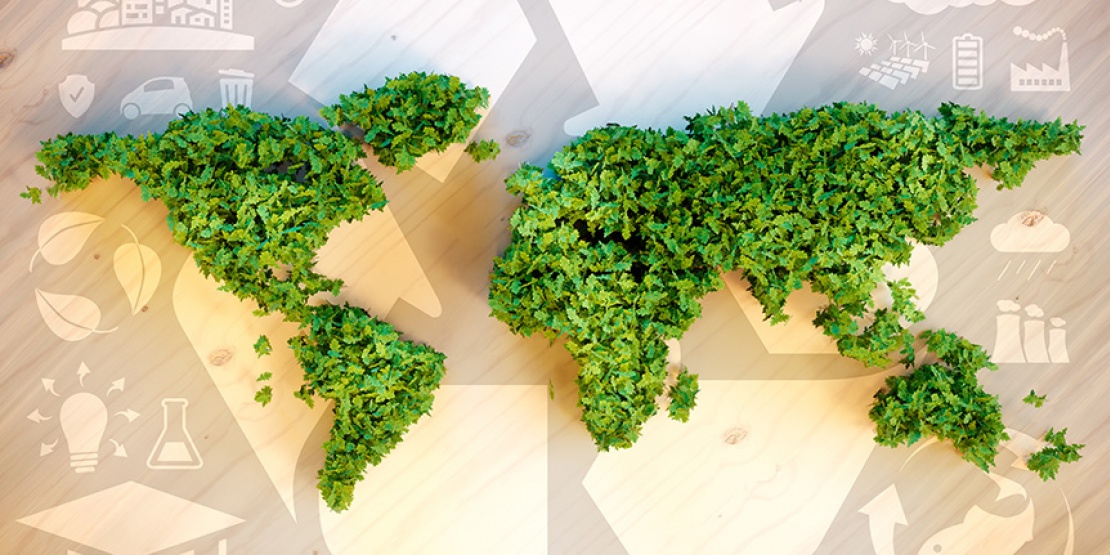Today, more and more companies are looking to comply with social and environmental concerns. They aspire to base their commitments on specific approaches and actions in favour of sustainable development. The implementation of a responsible purchasing policy is one of the solutions adopted by companies to improve their impact on the environment and society.
Indeed, the purchasing function is a lever that can be activated within the framework of CSR (Corporate Social Responsibility). In many cases, the choice of responsible products has become a necessity for companies, as all of their stakeholders have grown more attentive to the responsible dimension of purchasing: customers, partners, suppliers, investors, institutions, employees, etc.
These new standards encourage companies to find alternative solutions, and to rethink their products' footprint from the start. The purchasing function is thus growing in importance with regard to the choice of raw materials necessary for the manufacture of products, as well as in terms of dialogue with suppliers and the required quality levels expected from them.
A generalised awareness within the purchasing function</h2>
By selecting responsible products, buyers act positively in the context of social and environmental issues, such as the fight against global warming, or the defence of inclusion and diversity in companies.
Although several of these issues have been known for years, the Covid-19 pandemic has accelerated awareness. As a result, the requirement level expected by companies regarding the responsible dimension of purchasing is increasing. New evaluation criteria are added to more “traditional” ones, such as the economic performance of purchases.
Responsible purchasing approaches no longer concern just a few companies. They are now becoming more widespread, and offer new prospects for development and growth.
In this regard, the 2019 Ecovadis biennial European barometer reveals that 35% of companies have already implemented responsible purchasing, and that 42% of them have a specific CSR clause in their contracts. 45% of them also have information on the social and environmental practices of suppliers.
Better yet, according to many decision-makers, the implementation of this responsible purchasing strategy contributes to renewing their approach, and to obtaining positive results for the growth of the company. 58% believe that it helps reduce risk (by enabling regulatory compliance), 30% think that it helps reduce costs, 24% see it as a source of potential innovation, and 21% say that it contributes to the improvement of purchasing indicators (the famous KPIs). These figures will certainly rise even further in the 2021 barometer.
The acceleration of responsible purchasing procedures</h2>
Not only are social and environmental issues well known to all audiences today, but initiatives in companies are also multiplying and being structured.
Two major components of responsible purchasing are dominant to date:
- Buyers favour responsible products in order to protect the environment. The benefits being sought may be the reduction of waste, pollution, energy and water consumption, GHGs (greenhouse gases), or even the development of a circular economy.
- Buyers choose products following a socially responsible approach, with the objective of ensuring the health and safety of employees, or promoting good working conditions.
The strategic role of buyers in the face of new social and environmental requirements</h2>
Demand from internal and end customers for products with a positive social or environmental impact continues to grow. Responsible purchasing policies are becoming strategic issues for companies.
Buyers have to ensure that the priorities defined by the company match the selection of responsible products. As maturity levels vary in terms of CSR, responsible purchasing can be guided by different needs.
The CSR performance indicators thus vary depending on the sector, the best performers in Europe being the chemicals (45.1%) and agri-food (44.1%) sectors, whereas the NICTs (39%) and transport (38.4%) are lagging behind, according to the Ecovadis 2019 barometer.
Also according to this study, buyers globally are growing increasingly active each year in order to respond to these new concerns which are, in order of importance:
- Social and human rights: 49.1% in 2019 as against 44.2% in 2015;
- The environment: 47.5% in 2019 as against 44.1% in 2015;
- Ethics: 43.8% in 2019 as against 39.5% in 2015;
On the other hand, the index concerning responsible purchasing is stagnating. It was at 37.9% in 2019 as against 36.9% in 2015, reaching its maximum in 2016 at 38.6%. Despite everything, the European Union had higher scores for responsible purchasing, with 42.7% for companies with more than 1,000 employees, and 45.1% for SMEs based in Europe.
Even though most of these indicators are positive globally, and especially at European level, shortcomings still persist in the implementation of this CSR approach at the purchasing level.
In this regard, even though buyers manage to obtain precise data on rank 1 suppliers (45%), they are still lacking information concerning rank 2 suppliers (only 23%). Buyers therefore have a major role to play in further increasing the transparency of procurement procedures.
Lastly, despite everything, the Ecovadis 2020 index on CSR performance within the Supply Chain puts Europe quite a long way ahead of other continents, with an overall CSR performance index of 51.9% for large companies, and 50.9% for SMEs. It is therefore quite clearly ahead of North America, which comes second with indicators of “only” 43% for large companies, and 45.9% for SMEs.
In conclusion, responsible purchasing is an action lever for companies in favour of environmental protection and social progress. However, in order to respond effectively to the growing demands of the public (suppliers, investors, customers, etc.), the buyers' mission is to align these factors, sustainably and in depth, with the company's CSR initiatives. Responsible products must therefore be selected according to the specific needs of the company, with particular attention throughout the Supply Chain to maintaining a coherent social and environmental policy.









